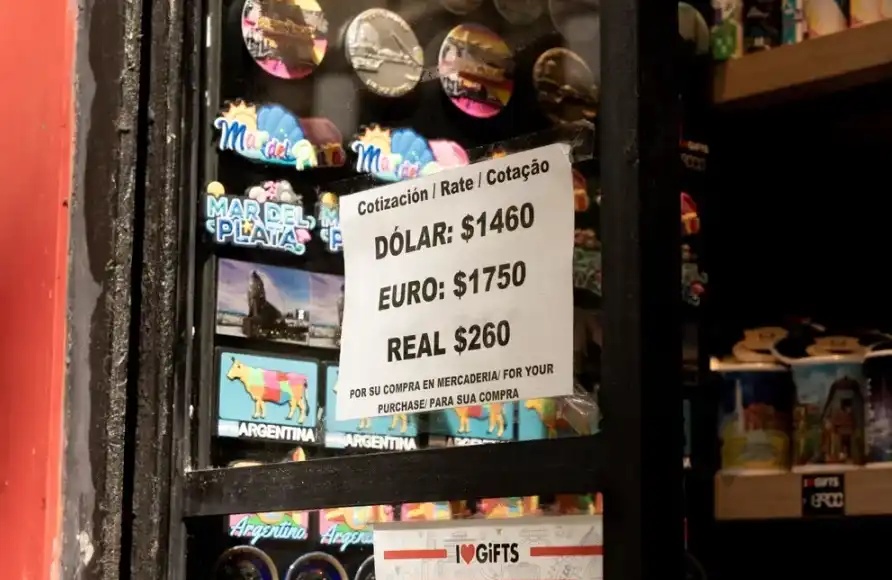After El Salvador's approval, which U.S. states are advancing the "HODL" Bitcoin Reserve Strategy Act?
On May 7, cryptocurrency reporter Eleanor Terrett revealed that New Hampshire has become the first state in the United States to pass a strategic Bitcoin reserve law, authorizing state officials to directly purchase or trade products of the world's largest digital asset through exchanges.
The legislation in New Hampshire is HB302, introduced by Republican lawmaker Keith Ammon and received bipartisan support. The law allows the state treasurer to invest up to 5% of state public funds (based on general funds, income stabilization funds, etc.) in qualified digital assets or precious metals (such as gold, silver), with the initial proposal set at 10% and later reduced to 5% due to security considerations. On April 10, 2025, the bill passed the House floor vote with 192 votes in favor and 179 votes against, and State Treasurer Monica Meza-Perez stated that if the bill becomes law, a pilot investment will be launched, with an initial scale potentially reaching $180 million.
At the federal level, Trump signed an executive order in March, calling for the establishment of a strategic Bitcoin reserve and digital asset stockpile. Below is the progress of Bitcoin strategic reserve in various U.S. states produced by BlockBeats.

Enacted States
In addition to New Hampshire, the Bitcoin-related legislation in Utah has also been enacted, but the bill passed in Utah removed the strategic reserve provision.
Utah
In early 2025, Utah State Representative Jordan Teuscher introduced a bill titled "Blockchain and Digital Innovation Amendment" on January 21, allowing the state treasurer to invest up to 10% of public funds in digital assets, including Bitcoin, non-fungible tokens (NFTs), and stablecoins, subject to regulatory approval, market capitalization, liquidity, and other conditions. On March 10, 2025, the Utah State Senate passed HB0230, but removed the key provision allowing the state treasurer to invest in Bitcoin, instead providing residents with rights to digital asset custody protection, mining, running nodes, and participating in staking. On March 25, Governor Spencer Cox signed the bill into law, which took effect, with the final legislation excluding Bitcoin reserve content and focusing on blockchain technology and individual digital asset rights.
The provision for direct state investment in Bitcoin was removed, reflecting lawmakers' concerns about market risks. Senator Kirk A. Cullimore stated during a meeting on March 7 that the removal of the reserve provision was due to "significant concerns regarding the early adoption of these policies." As of now, Utah has not established a state-level Bitcoin reserve but has shifted legislative focus to regulating digital assets and protecting innovation.
Steady Progress States
Texas
Texas has shown bipartisan support for Bitcoin reserve legislation. The Senate has passed the "Strategic Bitcoin Reserve Bill" (SB-21), allowing the use of public funds to purchase Bitcoin and other high-market-value cryptocurrencies, aiming for a target holding of $500 billion and planning to allocate $250 million from the Economic Stabilization Fund. In addition, the House Bill HB4258 further authorizes local governments to invest in cryptocurrency, demonstrating the comprehensive nature of its legislative framework. The bill has been submitted to the Government Efficiency & Delivery Committee of the state and is set to become effective on September 1st of this year if successfully passed by both chambers of the state.
Texas has demonstrated early support for cryptocurrency. In 2021, the Texas Legislature established the "Texas Blockchain Workgroup," focusing on blockchain development, and attracted a large number of Bitcoin mining companies to Texas with its abundant and inexpensive energy. For example, the Whinstone facility operated by Riot Blockchain in Rockdale has become the largest single Bitcoin mining center in North America.
Lieutenant Governor Dan Patrick once stated: "Bitcoin is digital gold, and its limited supply and decentralization will be a key asset for the future of Texas." According to Bitcoin Magazine, Texas currently has 8 bills related to Bitcoin or cryptocurrency. Among these eight bills, HB4258 is the fifth bill submitted for committee consideration. Four of these bills, including the current bill, require Texas to establish a strategic Bitcoin reserve (HB4258, HB1598, SB21, and SB778).
Alabama
Alabama Republican Senator April Weaver submitted Senate Bill 283 (SB 283) in early April, alongside House Bill 482 (HB 482) introduced since March 2025, setting a threshold of a "market value of $750 billion" (currently only Bitcoin meets it), indirectly pegging Bitcoin as a reserve asset. Cryptographic assets must be managed directly by the state finance officer and cannot exceed 10% of the state budget. If this bill is passed, it will become effective on October 1, 2025.
Minnesota
Minnesota Republican Representative B. Olson submitted House Bill 2946 (HF 2946) on April 1, 2025, known as the Minnesota Bitcoin Act. The corresponding Senate Bill SF 2661 has been submitted since March 2025. Both bills are identical, allowing the State Investment Board to allocate public funds to Bitcoin, accepting BTC as a form of tax payment and for government transactions, and amending 12 existing laws, including tax codes, retirement plans, and investment regulations, to integrate cryptocurrencies. If this bill is passed, it will become effective on January 1, 2026.
Ohio
Senator Sandra O'Brien introduced the Ohio Bitcoin Reserve Act SB57 on January 28, 2025, authorizing the state treasury to directly invest in Bitcoin, mandating a minimum five-year Bitcoin holding period, and requiring state institutions to accept cryptocurrency payments. It also allows state residents, institutions, and universities to donate Bitcoin to the reserve fund. On January 29, it was referred to the Senate Finance, Insurance, and Technology Committee and is currently in the committee review stage with no further progress.
In addition, Bitcoin reserve bills are being introduced or advanced in states such as Iowa, Missouri, Georgia, Illinois, Kansas, Kentucky, Maryland, Massachusetts, Michigan, New Mexico, North Carolina, Rhode Island, among others, and have not yet been explicitly rejected or tabled.
States with Rejected Bills
Arizona
On April 29, two "Arizona Strategic Bitcoin Reserve Act" bills passed the final vote in the House and are awaiting signature by Democratic Governor Katie Hobbs. The SB 1373 proposes the establishment of a digital asset strategic reserve fund managed by the state treasurer, allowing up to 10% of the annual budget to be invested in digital assets such as Bitcoin; while the SB 1025 allows the state treasury and retirement systems to invest up to 10% of available funds in cryptocurrency, with a focus on Bitcoin. On May 3, Arizona Governor Katie Hobbs vetoed the "digital asset strategic reserve" bills passed by the state House and Senate, calling cryptocurrency an "unverified investment."
Florida
Florida's HB 487 bill was introduced in February 2025, allowing the state CFO and the State Board of Administration to invest up to 10% of public funds, including the General Revenue Fund and Budget Stabilization Fund, in Bitcoin. On April 10, it received unanimous support (no opposing votes) from the House Insurance and Banking Subcommittee, advancing to the Government Operations Subcommittee for review. On May 3, the bill was tabled indefinitely and withdrawn from consideration, as the legislative session ended on May 2 without passing the related bills.
Oklahoma
Oklahoma's Cody Menard introduced the HB1203 bill on January 15, 2025, aiming to allow the state reserve and retirement funds to invest in Bitcoin and other digital assets, up to 5%. The bill passed the House on March 25 with a vote of 77-15 and was forwarded to the Senate. However, it was rejected by the Senate Finance Committee on April 15 with a 6-5 vote, causing the bill to fail, and there are currently no signs of further progression.
Montana
Montana state legislators introduced HB 429 on January 31, 2025, proposing to allow the state to invest up to $50 million in Bitcoin, digital assets, stablecoins, and precious metals as part of the state's diversification of investments. However, the bill was rejected on February 21 in the House with a vote of 59-41, failing to pass the initial round of voting, with no indication of a restart. Montana's legislative efforts for a Bitcoin reserve have come to a halt.
Pennsylvania
Pennsylvania representatives Mike Cabell and Aaron Kaufer introduced HB 2664 on November 14, 2024, allowing the state treasurer to invest up to 10% of Pennsylvania's General Fund, Rainy Day Fund, and State Investment Fund in Bitcoin and cryptocurrency-based exchange-traded products, potentially involving investments of up to $9.7 billion. However, as of March 2, 2025, the bill was "effectively terminated" during the legislative process, failing to progress further, and there is currently no indication of a potential reintroduction.
North Dakota
North Dakota representatives Nathan Toman, Josh Christy, and Senator Jeff Barta jointly introduced the Strategic Bitcoin Reserve Act on January 11, 2025, aiming to allow the state treasury to invest in Bitcoin, but the specific investment ratio and details were not clear. However, the bill has not continued to progress, with legislative failure, and no signs of a restart, concluding North Dakota's legislative efforts for a Bitcoin reserve.
South Dakota
South Dakota lawmakers postponed a bill on February 25, 2025, that might have allowed the state to adopt Bitcoin as a strategic reserve asset, with specific details unclear but aimed at enabling the state treasury to invest in Bitcoin. The reason for the postponement was cited as the high volatility of Bitcoin prices. The bill has since been terminated with no further progression.
Wyoming
On January 18, 2025, a bill was introduced, with Wyoming Senator Cynthia Lummis supporting the introduction of HB0201 on January 18, 2025. The bill would allow the state treasurer to invest in Bitcoin, up to 3%, including General Fund, Permanent Mineral Trust Fund, and Permanent Land Fund, with investments made through direct purchases or using regulated Bitcoin exchange-traded products. However, the bill has not made further progress, listed as a failed bill, concluding the legislative efforts.
The breakthrough in New Hampshire has set a benchmark for all U.S. states. States like Texas and Alabama are quickly following suit by enacting legislation to incorporate Bitcoin into their public finance frameworks, aiming to diversify asset risks and seize the lead in the digital economy. States that have previously rejected establishing a Bitcoin reserve due to the high volatility and regulatory challenges of cryptocurrency, as well as other states that are in the process of advancing similar initiatives, may also change course following New Hampshire's initial step. Despite facing multiple challenges, Bitcoin's positioning as "digital gold" is gradually being solidified through local legislation. Whether it can become a mainstream reserve asset remains to be seen, but there is no doubt that cryptocurrency is increasingly being embraced by the mainstream, and the path to the future will only grow wider.
Welcome to join the official BlockBeats community:
Telegram Subscription Group: https://t.me/theblockbeats
Telegram Discussion Group: https://t.me/BlockBeats_App
Official Twitter Account: https://twitter.com/BlockBeatsAsia


 Forum
Forum Finance
Finance
 Specials
Specials
 On-chain Eco
On-chain Eco
 Entry
Entry
 Podcasts
Podcasts
 Activities
Activities
 OPRR
OPRR









